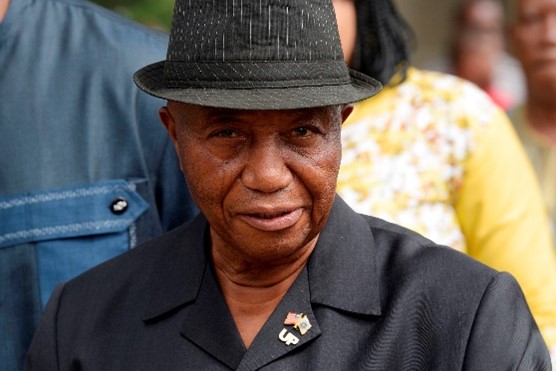President Joseph Boakai of Liberia has come under fire for his abrupt decision to revoke the appointments of Ambassadors-at-Large, Special Envoys, and Trade and Investment Representatives. Announced on October 28, 2024, this diplomatic overhaul raises pressing questions about the efficacy of the country’s foreign policy framework, particularly regarding the vetting processes and terms of reference for such roles. Analysts, including political commentator Abdullah Kiatamba, have voiced concerns that the lack of structured guidelines can lead to inefficiencies that might jeopardize Liberia’s international relations and its strategic interests. According to Kiatamba, a clearly defined operational structure is essential for effective diplomacy and can mitigate confusion among appointees.
Kiatamba elaborated on the situation, indicating that the President has the responsibility to define foreign policy while the Ministry of Foreign Affairs carries out the execution through diplomatic channels. He observed that the recent cancellations signify a broader issue within the government’s approach, where officials often devised their terms of reference without proper guidelines, leading to potential misalignment with the country’s foreign policy agenda. The internal investigation performed by the national security team reportedly revealed instances of abuse and disarray, prompting President Boakai’s radical response to halt the ongoing appointments and reevaluate the diplomatic landscape.
Many have debated the implications of dismissing all appointees simultaneously, suggesting that a more targeted approach might have minimized public embarrassment for many. Still, Kiatamba posits that by withdrawing the appointments entirely, President Boakai has effectively reset the diplomatic structure to its earlier state, preventing further complications that might arise if appointees were allowed to proceed with initiatives that contradicted the Administration’s policies. The underlying concern is that those in appointed positions may lack coordination or may even resonate with conflicting foreign interests, which necessitates prompt action.
Another focal point in this discussion is the procedure that should follow the revocation. Kiatamba emphasizes the urgency of reestablishing a clear vetting process to ascertain who among the potential candidates can effectively fulfill their roles in alignment with Liberia’s foreign policy. The situation demonstrates a wider issue of unauthorized actions and mismanagement that has plagued the country’s diplomatic sector. By retracting diplomatic and service passports, the Boakai administration aims to restore authority and ensure that all diplomats comply with established policies and ethical standards.
The controversy surrounding the previous administration, particularly regarding the use of diplomatic passports linked to former passport director Andrew Weplue, has underscored the pressing need for reforms. Such lapses in authority and corruption threaten public trust, thereby necessitating a foundational shift in governance and diplomatic integrity. Kiatamba’s backing of the President’s recent actions highlights a common belief that such a bold move is both necessary and justifiable in restoring credibility to Liberia’s diplomatic ventures.
In conclusion, President Boakai’s actions reflect a tumultuous transition within Liberian foreign policy frameworks, characterized by a significant loss of trust and the need for stringent guidelines. The diplomatic reprieve serves as a critical opportunity to refine appointment procedures, ensuring that future engagements align seamlessly with the government’s established directions. In a global landscape increasingly dictated by clarity and strategic foreign relations, the ongoing reform within Liberia’s diplomatic appointments will be instrumental in regaining both domestic and international confidence.


